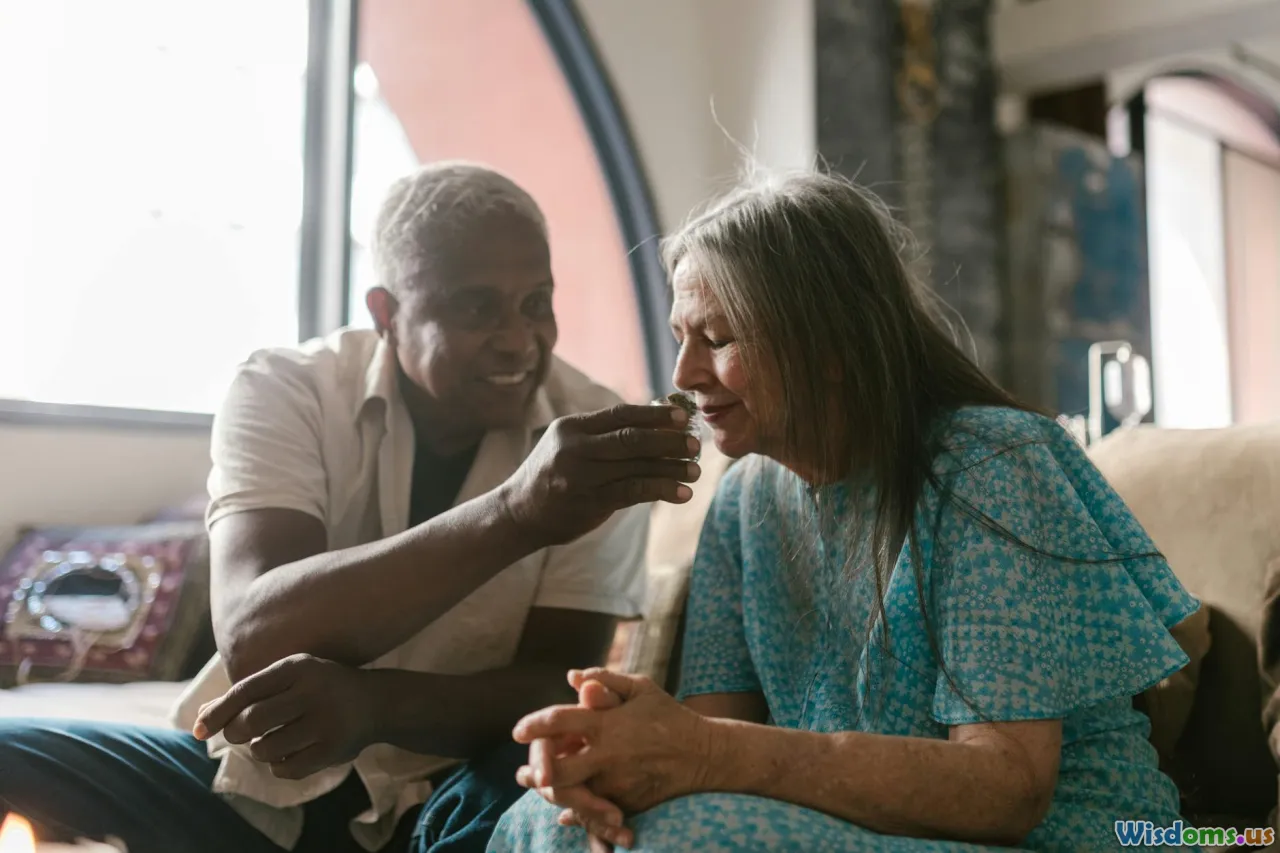
Can Couples Beat Loneliness as They Grow Older
11 min read Explore how couples can overcome loneliness in later life with communication, shared activities, and social connections. (0 Reviews)
Can Couples Beat Loneliness as They Grow Older?
Aging is often accompanied by life changes—children leaving home, retirement, evolving social circles—that can sometimes lead to feelings of isolation. Even within a committed partnership, couples are not immune to loneliness. But is it inevitable? Or can couples defy the trend and find meaningful connection, together, as the years go by?
The Reality of Loneliness in Later Life

Loneliness is not just an individual struggle; it can arise within relationships, too. Research from the National Academies of Sciences, Engineering, and Medicine (2020) found that nearly one-quarter of adults aged 65 and older are socially isolated. While marriage or cohabitation reduces some risks, it doesn’t automatically insulate couples from feeling alone.
Life transitions—like retirement or relocation—can result in shifts in daily routines and networks. If health declines or one partner suffers from mobility impairment, couples may socialize less, magnifying isolation. Even within households, couples can drift apart emotionally due to diverging interests or long-standing unresolved conflicts.
Consider George and Maria, who celebrated 50 years of marriage. As their social circle dwindled due to friends moving away, George's hearing loss reduced their outings. They found themselves together, but not truly connecting—highlighting the complex, sometimes hidden, contours of loneliness among aging partners.
Understanding the Dynamics of Couple Loneliness

Couples often experience distinct forms of loneliness. For some, it’s the absence of shared activities; for others, it’s emotional distance or lack of meaningful conversation. A study in the journal Gerontologist highlights that loneliness in couples is most acute when partners feel emotionally unsupported or misunderstood.
Communication styles, personal histories, and adaptability all play roles. If partners grew accustomed to interacting primarily around their children or work, they might struggle to find a "new normal" after those routines fade. Emotional neglect can accumulate silently over years—a spouse feels unheard, or both take each other's presence for granted.
However, couples who intentionally address their emotional needs—for example, by setting aside time for genuine conversation or shared hobbies—are more likely to experience resilience against loneliness. Emotional intelligence, vulnerability, and willingness to adapt are crucial tools.
Rediscovering Connection: Practical Strategies for Couples

1. Curate Joint Experiences
Retired couples can create new rituals that encourage interaction and bonding. Cooking a new recipe together, planning a weekly movie night, or exploring local attractions can spark joy and foster closeness. The Marriage Foundation’s research suggests couples who spend time on shared hobbies report higher relationship satisfaction and less loneliness.
Example:
Edith and Claire, partners in their seventies, started volunteering at a local animal shelter after feeling the emptiness of an "empty nest." Their joint venture not only gave them purpose, but also rekindled a sense of teamwork and camaraderie.
2. Prioritize Meaningful Conversations
Rather than settling into comfortable silence, make it a habit to discuss hopes, fears, and even regrets. Setting aside a half-hour each day for undistracted conversation can boost emotional intimacy. Relationship therapists often recommend using prompts like, “What’s something you’re grateful for today?” or “Was there a moment when you felt lonely this week?”
3. Embrace Technology
Video calls, messaging apps, and virtual communities can help older adults maintain bonds with distant family and friends. Couples can partake in online classes or play games like virtual Scrabble, transforming potential isolation into opportunities for connection.
Overcoming Barriers: Physical and Emotional Challenges

Coping with Declining Health
Chronic illness, cognitive changes, and disability can limit social engagement. However, adapting living spaces and routines to include both partners in activities—at whatever ability level—can mitigate loneliness. Community resources, such as senior day programs or home-based therapies, often enable continued participation.
Real-Life Insight:
Stan develops arthritis, making hiking with his wife Katherine difficult. Instead, they switch to gardening, adjusting their shared time to match Stan's new capacity while maintaining the togetherness that mattered most to them.
Addressing Emotional and Mental Health
Depression and anxiety are both causes and consequences of loneliness. It’s important that couples openly acknowledge mental health concerns, seeking help where needed. Counseling, either individually or together, can be transformative—empowering couples to mend old wounds and reaffirm their bond.
The Social Side: Strengthening Community Ties Together

Isolation isn’t just about who’s inside your home, but also about your social universe outside of it. Couples who maintain friendships, participate in community events, or join organizations experience lower rates of loneliness. According to AARP's survey (2018), older adults with broader social networks report higher levels of happiness and well-being.
Neighborhood groups, places of worship, or club memberships are avenues for not just individual, but shared, connection. Couples can organize a small dinner group or lead a local book club—acts that expand social circles, reinforce mutual support, and inject new energy into daily life.
Example:
Malik and Lorraine host monthly potlucks for neighbors. The sense of hosting and connection with others became the centerpiece of their retirement, turning acquaintances into cherished friends.
Cultivating Independence Within Togetherness

Counterintuitively, couples who nurture individual interests can also reduce loneliness within their relationship. Personal fulfillment outside of the partnership allows each person to bring fresh perspectives and experiences to the table.
A 2019 study published in Psychology and Aging found that older couples who encouraged one another’s individual passions—be it art classes, athletic pursuits, or continued education—were more likely to feel supported both as individuals and as a duo.
Tips:
- Carve out “me time” to pursue your interests.
- Use time apart to reflect, so shared moments feel more novel and valuable.
- Champion each other’s growth—attend an exhibition or recital your partner participates in, ask questions, express interest.
Embracing Change: Building Flexibility Into the Relationship

As circumstances shift—with health, family, or finances—what helps stave off loneliness is adaptability. Couples should periodically assess old routines and be willing to try something new. Relocating to be closer to friends or services, adjusting routines, or even redefining retirement plans can all inject fresh purpose.
Emotional flexibility is just as vital. Accepting that roles may shift—a former ‘provider’ may become cared for, or a ‘home-maker’ steps out into new pursuits—demands honesty and empathy from both partners. Relationship counseling isn’t only for rocky times; it can help couples negotiate these transitions smoothly.
Looking Ahead: Nurture, Don’t Neglect, Your Bond

Loneliness isn’t an inevitable feature of old age for couples. With intentional effort, creativity, and care, partners can build rewarding, resilient connections—even as the world around them changes. The key is to stay proactive: nurturing your own well-being, investing in joint experiences, bolstering social networks, and supporting each other’s individuality.
Every couple’s journey is unique, but one truth remains: combating loneliness is a shared adventure. Through openness, understanding, and a touch of humor, couples can not just endure—but thrive—together in the years ahead.
Rate the Post
User Reviews
Popular Posts
















